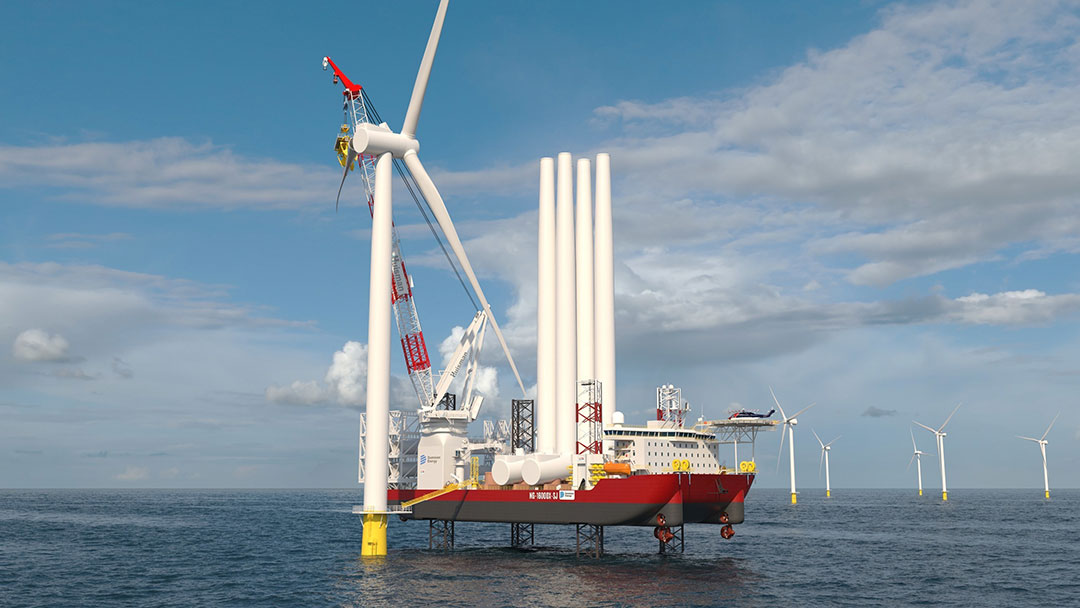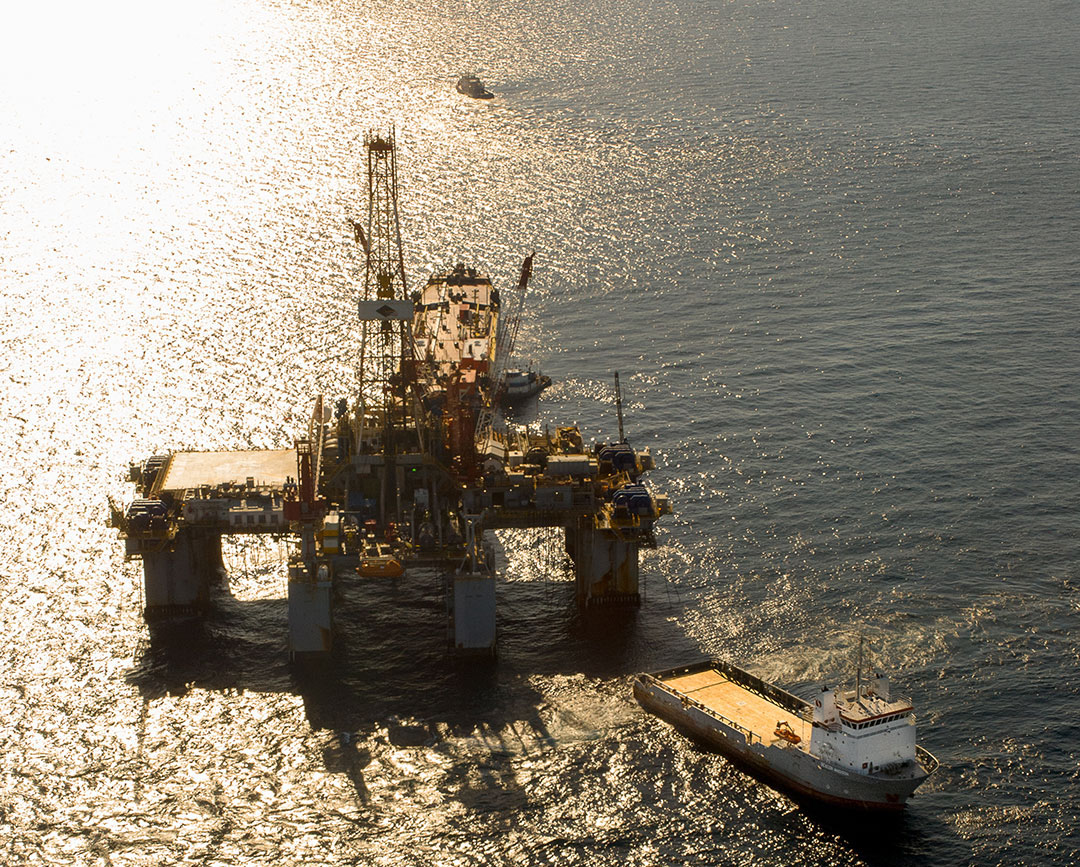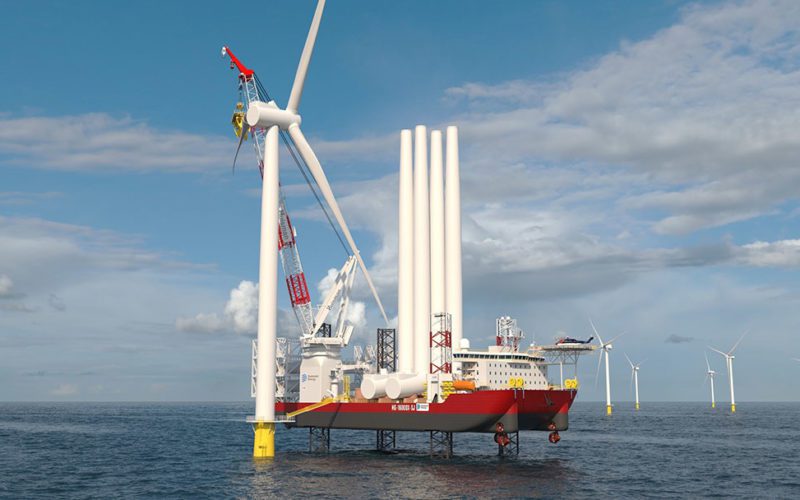
Congress is considering legislation that would tighten eligibility for foreign ships and foreign crews working on the U.S. Outer Continental Shelf (OCS).
The proposed American Offshore Worker Fairness Act specifically targets waivers issued by the U.S. Coast Guard allowing foreign crews and ships to operate in these waters with limited oversight. The bill would primarily affect foreign operators working in the oil and gas and offshore wind industries.
Rep. Garret Graves, R-La., and Rep. John Garamendi, D-Calif., are sponsoring the bill in the House, where it has been attached to the Coast Guard Authorization Act of 2022. Sen. Bill Cassidy, R-La., is leading the effort in the Senate.
“U.S. and Louisiana mariners and maritime companies lose when foreign vessels, which do not pay U.S. taxes, business taxes or payroll taxes, take advantage of loopholes to hire foreign workers for half the cost,” Cassidy said in a statement issued by the Offshore Marine Service Association (OMSA), which is supporting the bill.
“This bill levels the playing field to give the American worker a fair shot,” Cassidy continued.

Maritime operations on the OCS are governed by the Outer Continental Shelf Lands Act of 1953 (OCSLA). The Outer Continental Shelf refers to subsea areas off from U.S. states. It begins three miles off most states, although in Texas and Florida it begins nine miles from shore.
The OCSLA contains provisions similar to the Jones Act, requiring vessels, rigs and other equipment used in these waters to be American owned and crewed by Americans. However, it contains an exemption that allows foreign ships and foreign crews with an eye toward ensuring Americans can perform similar work in foreign waters.
The U.S. Coast Guard is charged with enforcing key aspects of the OCSLA, including waivers allowed under the law. The service does not require foreign ships operating on the U.S. Outer Continental Shelf to employ workers from the home country of the vessel owner, according to a fact sheet released by Cassidy’s office.
Foreign ships looking to operate in these waters, often in support of oil and gas exploration, must receive a letter of OSCLA non-applicability from the Coast Guard. These letters do not expire, and they exempt the operators from employing American mariners.
“Furthermore,” the fact sheet indicates, “OCSLA letters of non-applicability can be provided to an unlimited number of foreign mariners. These foreign mariners utilize the letter to secure a visa, which is valid for five years. But, the (Coast Guard) is uncertain how many visas have been issued or are currently valid.”
This interpretation of the law allows foreign mariners to perform work that otherwise would be performed by Americans. These mariners, often from developing nations, earn up to 70 percent less than U.S. mariners. Their parent companies also can skirt U.S. tax and labor laws while escaping Coast Guard regulatory oversight.
“As a result,” Cassidy’s office said, “foreign vessel owners are able to leverage the cost savings derived to undercut the charter rates of similar U.S. vessels.”
The proposed legislation would create new requirements for foreign operators pursuing exemptions under the OSCLA. The bill would require foreign-owned ships operating on the OCS to employ mariners from the same country where the vessel is owned. It would require those foreign workers to obtain a Transportation Worker Identification Credential, or TWIC, and cap the number of foreign workers at 2.5 times the vessel’s crew.
The bill also would sunset all existing letters of non-applicability within six months of the law taking effect, and it would subject foreign ships working on the OCS to annual Coast Guard inspections.
Aaron Smith, OMSA’s president and CEO, said the bill is intended to create a level playing field between Americans and foreign companies vying for the same work.
“Apples to apples, we can compete with anyone on the planet, but we shouldn’t have to compete with people who are paying slave-level wages,” Smith said. “This bill will allow more American mariners to go to work in the offshore oil and gas and offshore wind industries.”
The bill has some notable opponents, including the trade group American Clean Power (ACP), which represents offshore wind interests. The group said the bill could hinder the development of offshore wind along U.S. shores. For instance, there are only three wind turbine installation vessels in the world capable of installing 14-megawatt turbines. None are U.S.-flagged, although one is under construction.
“We have significant concerns with the language because it would severely limit U.S. offshore wind developers’ ability to hire the vessels it needs to construct and operate their projects, thereby reducing opportunities for U.S. vessels and mariners to support these projects and hampering the advancement of the industry as a whole,” said Claire Richer, ACP’s director of federal affairs.
Matthew Paxton, president of the Shipbuilders Council of America, said the legislation likely would spur more shipbuilding, particularly vessels supporting offshore wind construction.
“By closing these loopholes,” he said, “we believe that companies who wish to operate in the American offshore wind market will be compelled to make investments in U.S.-built vessels so that they do not lose out on the unique opportunities that the domestic market presents.”
There is no firm timeline for the legislation, which faces an uncertain path on Capitol Hill. But supporters are cautiously optimistic the measure will become law.

